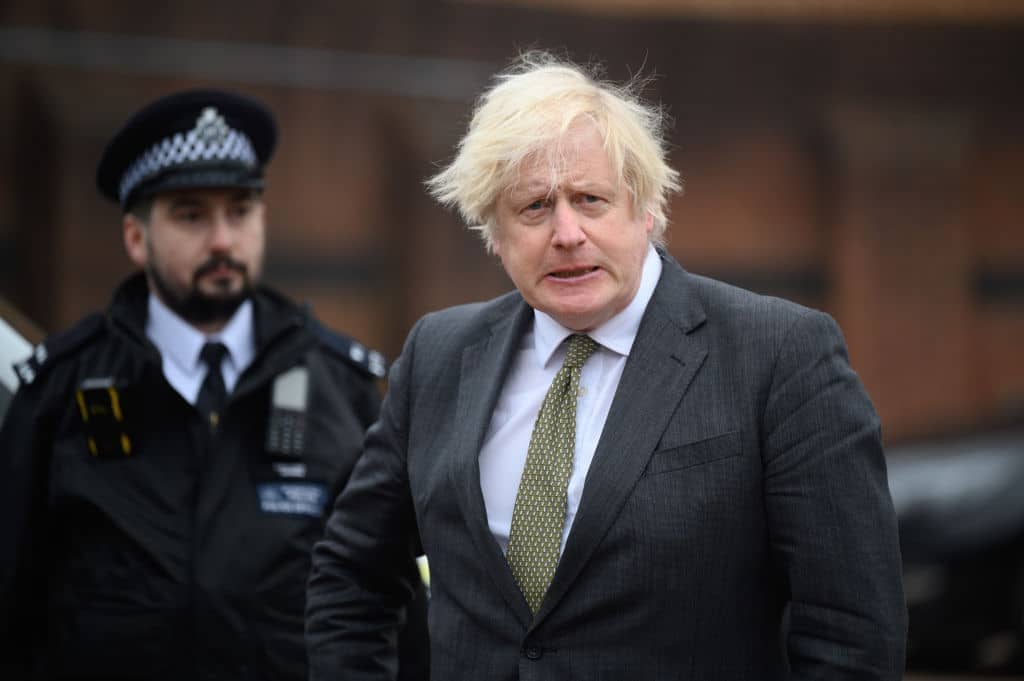When Boris Johnson held a cabinet call on Monday afternoon, the expectation was that an announcement on new restrictions would be imminent. But the meeting dragged on for three hours and the Prime Minister emerged afterwards announcing that nothing has changed. The situation is ‘extremely difficult’ and arguments both for and against restrictions are ‘finely balanced’ so the government would keep its eye on the data’. In a battle of Sage forecasts vs data realists, the latter had won. For now.
So what happened in that meeting? ‘Boris did a great job and encouraged a proper discussion and respected other views,’ says one minister. ‘He had quite a lot humility’. Michael Gove was, as usual, leading the arguments for more lockdown. But this was based on Sage forecasts of what might happen which have lost some credibility in the eyes of cabinet members who were — for the first time in a while — genuinely being consulted.
Johnson emerged keeping all options open. ‘We will have to reserve the possibility of taking further action to protect the public and our NHS.’
Was this the update the Prime Minister wanted to give?
And he attempted to move the focus back to the booster programme, urging people to come forward and get vaccinated and to show caution when it comes to parties and social mixing. We may yet see a narrative emerging where boosters are credited for helping Britain avoid lockdown.
Was this the update the Prime Minister had intended to give? The decision to convene a cabinet call suggests he had thought there was a decision to make that could lead to changes. The fact he ended up announcing no change whatsoever (and the length of the meeting) suggests that opposition from his own side prevented him from doing so.
Chris Whitty started off with a presentation making the case for restrictions (yet he stopped just short of calling for them directly). But several members of Johnson’s cabinet are vocally opposed to new restrictions. They argue that there needs to be clearer data before any restrictions are brought in — with whispers of resignations if Johnson pressed on without this. These members of government hope that more time (even a few more days) will offer clarity that could show Omicron is milder than previous variants.
Behind the scenes, the Chancellor is understood to have played a key role in warning against rushing into decisions that could cost billions — although he was quieter in the meeting, only giving his thoughts when asked directly to by the Prime Minister. Other ministers keen to see more modelling include Kwasi Kwarteng, Commons leader Jacob Rees-Mogg (who highlighted how people can reduce their travel without being under lockdown orders) and Transport Secretary Grant Shapps (‘although it was never quite clear what he was saying,’ I’m told). Other ministers have been pressing on Johnson that any new measures are guidance, not law.
When Johnson emerged talking about the need to wait for the data to work out Omicron’s severity, he was using the language of those who opposed lockdown. They argue, in effect, that Sage models cannot be trusted as they are composed of hypotheticals with a negativity bias baked in. The next few days of hospital data, it’s argued, will tell us much about how severe Omicron is and if lockdown is needed. Data is emerging not just from South Africa (where cases now seem to be falling) but Denmark where Omicron has been found to be significantly less likely to put patients in hospital.
Yet there remains a sense in government that, on the current direction of travel, restrictions are still more likely than not — it is just a question of when. Civil servants have been working on plans for a two week ‘circuit breaker’ after Christmas. The fact that Sajid Javid said on Sunday that any new measures would have to be put to parliament before being implemented suggests that Christmas day could avoid being affected by new measures. Instead, it’s more likely that the measures will be brought in from 28 December.
Johnson faces a parliamentary party filled with MPs vehemently opposed to any new restrictions and who could question his ability to lead as a result. When the Whips Office sent a note around on Monday afternoon telling MPs that the parliamentary away day has been cancelled, one messaged me to say: ‘It’s probably for the best. If we were all in one place for a few days, we could work out a successor.’
But there are Tory MPs who believe action is required. One senior Tory concludes: ‘This is a Prime Minister paralysed between science and his backbenchers. It’s depressing.’







Comments